
The Remains of the Day is a 1989 novel by the Nobel Prize-winning British author Kazuo Ishiguro. The protagonist, Stevens, is a butler with a long record of service at Darlington Hall, a fictitious stately home near Oxford, England. In 1956, he takes a road trip to visit a former colleague, and reminisces about events at Darlington Hall in the 1920s and 1930s.
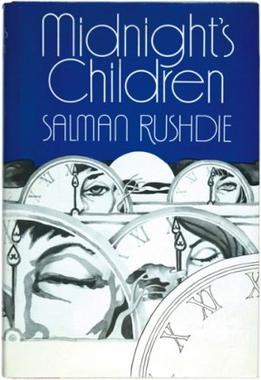
Midnight's Children is a 1981 novel by Indian-British writer Salman Rushdie, published by Jonathan Cape with cover design by Bill Botten, about India's transition from British colonial rule to independence and partition. It is a postcolonial, postmodern and magical realist story told by its chief protagonist, Saleem Sinai, set in the context of historical events. The style of preserving history with fictional accounts is self-reflexive.

The God of Small Things is a family drama novel written by Indian writer Arundhati Roy. It is a story about the childhood experiences of fraternal twins whose lives are destroyed by the "Love Laws" prevalent in 1960s Kerala, India. The novel explores how small, seemingly insignificant occurrences, decisions and experiences shape people's behavior in deeply significant ways. The novel also explores the lingering effects of casteism in India, lending a culturally-specific critique of British colonialism in India. It won the Booker Prize in 1997.

Kamala Markandaya, pseudonym of Kamala Purnaiya, married name Kamala Taylor, was a British Indian novelist and journalist. She has been called "one of the most important Indian novelists writing in English".

Pankaj Mishra is an Indian essayist, novelist, and socialist. His non-fiction works include Temptations of the West: How to Be Modern in India, Pakistan, Tibet, and Beyond, along with From the Ruins of Empire: The Intellectuals Who Remade Asia, and A Great Clamour: Encounters with China and Its Neighbours, and he has published two novels. He is a Bloomberg Opinion columnist, and prolific contributor to other periodicals such as The Guardian, The New York Times, The New Yorker and the New York Review of Books. His writings have led to a number of controversies, including disputes with Salil Tripathi, Niall Ferguson and Jordan Peterson. He was awarded the Windham–Campbell Prize for non-fiction in 2014.
Indian English literature (IEL), also referred to as Indian Writing in English (IWE), is the body of work by writers in India who write in the English language but whose native or co-native language could be one of the numerous languages of India. Its early history began with the works of Henry Louis Vivian Derozio and Michael Madhusudan Dutt followed by Rabindranath Tagore and Sri Aurobindo. R. K. Narayan, Mulk Raj Anand and Raja Rao contributed to the growth and popularity of Indian English fiction in the 1930s. It is also associated, in some cases, with the works of members of the Indian diaspora who subsequently compose works in English.
Nowhere Man may refer to:

Grimus is a 1975 fantasy and science fiction novel by Salman Rushdie. It was his literary debut.

Kamala Surayya , popularly known by her one-time pen name Madhavikutty and married name Kamala Das, was an Indian poet in English as well as an author in Malayalam from Kerala, India. Her fame in Kerala primarily stems from her short stories and autobiography, My Story, whereas her body of work in English, penned under the pseudonym Kamala Das, is renowned for its poems and candid autobiography. She was also a widely read columnist and wrote on diverse topics including women's issues, child care, politics, etc. Her liberal treatment of female sexuality, marked her as an iconoclast in popular culture of her generation. On 31 May 2009, aged 75, she died at Jehangir Hospital in Pune.
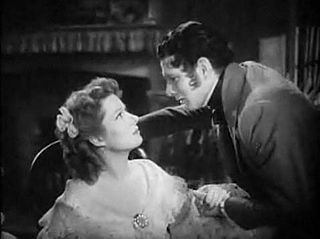
The author Jane Austen and her works have been represented in popular culture in a variety of forms.

Small Island is a novel written by British author Andrea Levy.
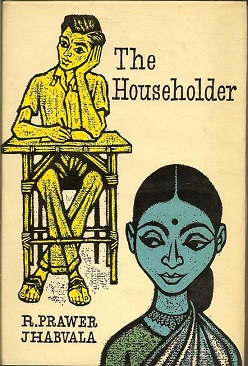
The Householder is a 1960 English-language novel by Ruth Prawer Jhabvala. It is about a young man named Prem who has recently moved from the first stage of his life, a student, to the second stage of his life, a householder. The book is a bildungsroman, which is a story where the protagonist develops mind and character as he passes from childhood through various experiences usually through a spiritual crisis into maturity.

Climate fiction is literature that deals with climate change. Generally speculative in nature but inspired by climate science, works of climate fiction may take place in the world as we know it, in the near future, or in fictional worlds experiencing climate change. The genre frequently includes science fiction and dystopian or utopian themes, imagining the potential futures based on how humanity responds to the impacts of climate change. Climate fiction typically involves anthropogenic climate change and other environmental issues as opposed to weather and disaster more generally. Technologies such as climate engineering or climate adaptation practices often feature prominently in works exploring their impacts on society.

In the Castle of My Skin is the first and much acclaimed novel by Barbadian writer George Lamming, originally published in 1953 by Michael Joseph in London, and subsequently published in New York City by McGraw-Hill. The novel won a Somerset Maugham Award and was championed by eminent figures Jean-Paul Sartre and Richard Wright, the latter writing an introduction to the book's U.S. edition.

Chinaman: The Legend of Pradeep Mathew is a 2010 novel by Shehan Karunatilaka. Using cricket as a device to write about Sri Lankan society, the book tells the story of an alcoholic journalist's quest to track down a missing cricketer of the 1980s. The novel was critically hailed on publication, winning awards and much positive review coverage.
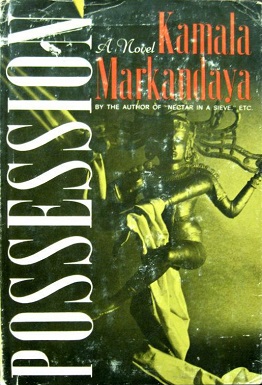
Possession: a novel is a 1963 English-language novel by Kamala Markandaya.

The Big Jubilee Read is a 2022 campaign to promote reading for pleasure and to celebrate the Platinum Jubilee of Elizabeth II. A list of 70 books by Commonwealth authors, 10 from each decade of Elizabeth II's reign, was selected by a panel of experts and announced by the BBC and The Reading Agency on 18 April 2022.
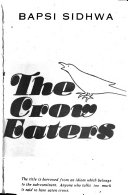
The Crow Eaters is a 1978 comic novel by Bapsi Sidhwa. The novel is about a Parsi family. The book was Sidhwa's debut novel.

The Bone Readers is a 2016 novel by Grenadan British author Jacob Ross, the second in his "Camaho Quartet." In 2017, it won the inaugural Jhalak Prize. In 2022, The Bone Readers was included on the "Big Jubilee Read" list of 70 books by Commonwealth authors, selected to celebrate the Platinum Jubilee of Elizabeth II.
Uma Parameswaran is an Indo-Canadian writer, scholar, and literary critic. Her writing includes works of fiction and poetry, as well as plays and nonfiction. She is a retired professor of English at the University of Winnipeg.

















